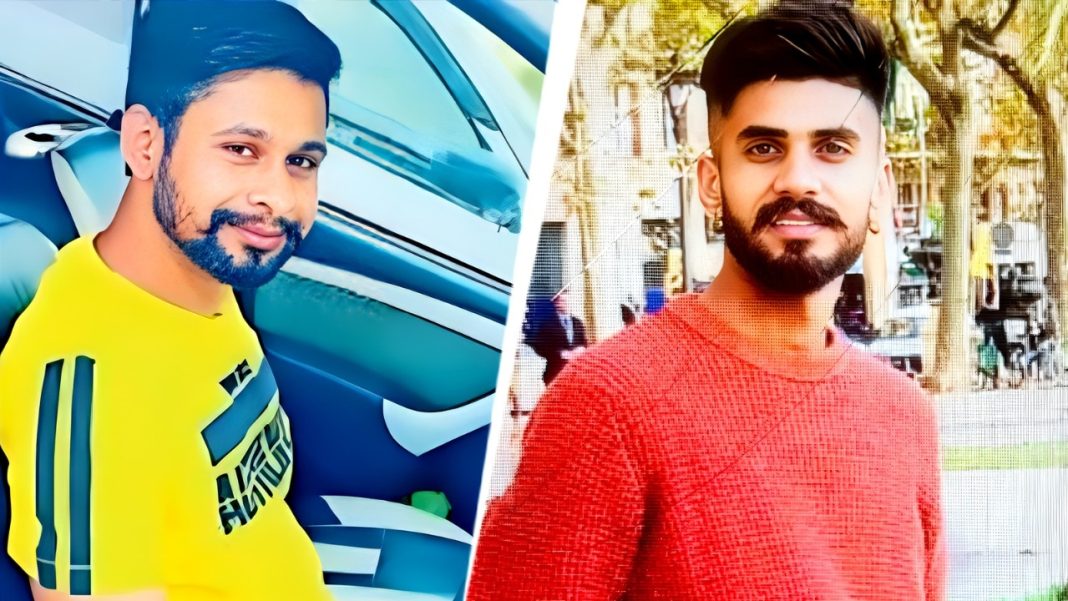The long arm of justice has once again demonstrated its reach across international borders, delivering a significant blow to organized crime networks operating from India. In a development that underscores robust global law enforcement cooperation, two of India’s most wanted gangsters, including a suspected member of the notorious Bishnoi gang, have been apprehended in a joint operation in the state of Georgia, USA.
The arrests mark a crucial victory for Indian authorities who have been relentless in their pursuit of high-profile criminals seeking refuge abroad. This coordinated action is expected to send a strong message to those who believe international boundaries offer an escape from accountability.
High-Stakes Arrests in the United States
The arrests unfolded quietly but efficiently in separate locations within Georgia, executed by a team comprising US law enforcement agencies, reportedly acting on precise intelligence shared by Indian counterparts. The apprehended individuals have been identified as Vikramjeet “Vicky” Singh, allegedly a key operative with links to the infamous Lawrence Bishnoi gang, and Sanjay Sharma, another individual wanted in India for a string of serious offenses.
Details surrounding the specific circumstances of their capture remain under wraps as investigations continue. However, sources indicate that both individuals had been residing in the US under various disguises, attempting to evade detection for crimes committed on Indian soil. Their presence in Georgia highlights the increasingly globalized nature of organized crime and the complex challenges it poses to law enforcement worldwide.
The operation is a testament to the strengthening strategic partnership between India and the United States, particularly in intelligence sharing and combating transnational crime. Such collaborations are vital in dismantling criminal networks that leverage digital anonymity and geographical distance to expand their illicit operations.
Unpacking the Criminal Histories: Bishnoi Links and More
The arrest of Vikramjeet “Vicky” Singh is particularly significant due to his alleged association with the Lawrence Bishnoi gang, an organized crime syndicate that has gained notoriety for its involvement in extortion, murder, arms trafficking, and drug smuggling across several Indian states, primarily Punjab, Rajasthan, Haryana, and Delhi. The gang has been linked to several high-profile cases, often operating with ruthless efficiency and maintaining an expansive network of operatives both within India and abroad.
Singh himself was reportedly wanted for multiple heinous crimes, including contract killings, orchestrating large-scale extortion rackets, and facilitating the movement of illicit narcotics. His evasion of capture had been a persistent challenge for Indian police, with intelligence suggesting he played a pivotal role in the gang’s international logistics and financial operations.
Sanjay Sharma, the second individual arrested, also carries a substantial rap sheet. He is reportedly wanted in connection with a series of armed robberies, kidnappings, and financial fraud cases across different states in India. His arrest further cripples various criminal enterprises that operate by pooling resources and manpower from different gangs. Both individuals were on the radar of central investigating agencies, who had issued Red Corner Notices through Interpol, a crucial step that enabled international tracking and eventual apprehension.
“This operation underscores our unwavering commitment to hunting down criminals, no matter where they hide,” stated a senior official from the Indian Ministry of Home Affairs, preferring anonymity due to ongoing investigations. “It’s a testament to the robust intelligence sharing and collaborative efforts between Indian and US law enforcement agencies. This level of cooperation is critical in disrupting transnational crime syndicates.”
The Road Ahead: Extradition and Implications
With their arrests, the focus now shifts to the complex process of extradition. Both Vikramjeet Singh and Sanjay Sharma are expected to face extradition proceedings in US courts, where Indian authorities will present evidence to secure their return to face justice. This legal process can often be lengthy, involving intricate legal battles over treaties, evidence, and human rights considerations.
Should the extradition requests be successful, their return to India would not only be a triumph for law enforcement but also provide crucial intelligence for dismantling the broader networks they were part of. Their interrogations could potentially unravel hidden layers of criminal operations, expose financial conduits, and lead to further arrests within India and internationally.
The apprehension of these wanted criminals in the United States serves as a powerful deterrent. It signals that the world is shrinking for those who commit crimes and then seek refuge in foreign lands. The enhanced cooperation between nations is making it increasingly difficult for criminals to escape the long arm of the law, reaffirming the global commitment to justice and security.
This development will undoubtedly be closely watched as it progresses through the legal system, reinforcing faith in international police cooperation as a vital tool against organized crime.




